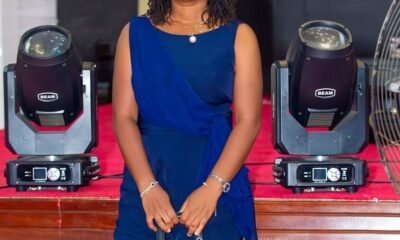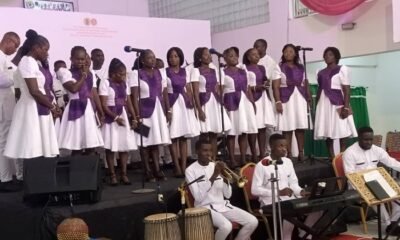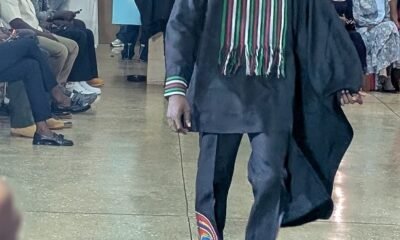Profile
Dr Francis Boateng Agyenim, leading solar energy, research conversation in Ghana

Dr Francis Boateng Agyenim
DR Francis Boateng Agyenim, Director of the Council for Scientific and Industrial Research-Institute of Industrial Research (CSIR-IIR), has over the past years led the advocacy for the utilisation of research and solar energy to transform Ghana’s economy.
Responsible for the day-to-day administration of Ghana’s foremost industrial research and development institute whose mandate is to drive national development and global competiveness in industry through scientific and technological research, Dr Agyenim has led several conversations and supported innovations aimed at making Ghana a research hub in Africa and the world at large.
He is also vocal on solar energy, believing it represents Ghana’s future and Ghanaian industries, and the government must take advantage of same to foster growth.
Born in Asikasu, a village seven miles away from Dormaa Ahenkro in the Bono Region, young Agyenim started his basic school at Asikasu No.1 where he combined education with farming in order to make ends meet.
Steadily, Agyenim gained his Middle School Living Certificate in 1984 at age of 15 before joining the Dormaa Senior High School from 1984-1989 for his O-level certificate.
He then moved to Osei Kyerekwie Senior High School (OKESS) in Kumasi (1989-1991) and later to the Kwame Nkrumah University of Science and Technology (KNUST) in 1998 where he studied Metallurgical Engineering to begin his research journey.
Before completing university, Dr Agyenim secured a job at AshantiGold before moving to Sankofa Gold in Prestea for two years. He travelled to Germany to do his Masters in Energy Conversion and Management in 2000 where he also secured a job in the solar industry for a year to launch his interest in solar energy.
He later moved to the UK where he worked and had a PhD in Solar Energy Engineering. Dr Agyenim also taught in three other universities in the UK-Cardiff, Ulster and Nottingham Universities.
Dr Agyenim moved back to Ghana in 2012 to head the Ghana Technology University College (GTUC) in 2012 as the Dean of Graduate School for four years.
While at GTUC, Dr Agyenim created a system of dual accreditation where Coventry University and other universities were partnering GTUC to teach foreign programmes in Ghana with students issued dual certificates. His key responsibilities included teaching and conducting cutting-edge research in renewable energy systems and sustainable energy technologies as well as some administrative functions as Course Director.
He also worked as Lead Consultant in several research and development projects and moved to CSIR-IIR in October 2016 as Director till date.
Dr Agyenim has consulted for several organisations on sustainable energy related projects and supervised installation of several solar PV systems in Ghana and Germany. He has over the last five years led the training of 2,900 professional electrical engineers/electricians on how to install and maintain solar systems.
He currently serves on several University and Management Boards including University for Development Studies (UDS) Council, Ghana Nuts Management Board, National Biosafety Authority Management Board, Nursing and Midwifery Council Management Board and CSIR Boards.
Dr Agyenim has developed and implemented several innovations, including the Zero Waste Disposal concept (ZeWaD), the CSIR Industrial Innovation Hub (i2-Hub) and novel solar powered absorption cooling system. He has to his credit several peer reviewed articles in the subject area of renewable and alternative energies, including guidelines document for the integration of solar powered absorption cooling systems into buildings and integrated wastewater and faecal sludge management for Ghana.
“Solar is the future and Ghanaians must begin to invest in solar. Interestingly, the solar availability in Ghana cannot be compared to countries where solar is popular like Germany,” he stated.
Thankfully, he said, with the support of Ghana Skills Development Fund, since 2015, nearly 3,000 certified electricians are currently dotted across the country, equipped to install solar professionally as the challenge had always been with the technicalities involved in the installation.
“The quality of panels have improved and could last for over 20 years as compared to the past. Solar at the moment is very robust and indigenous Ghanaian companies must take advantage as done by their foreign counterparts. Currently at the commercial scale, one can break even in five years,” he stressed.
“If the government can dedicate funds into putting solar on all public buildings, in the country to store power, it make the Electricity Company of Ghana (ECG) profitable. ECG should also begin to buy roofs of companies to store solar and sell it back to them. An average company owner is only interested in seeing their electricity reduced,” he suggested.
With his core mandate at the CSIR-IIR, they conduct research and develop products materials and manufacturing, engineering designing and prototyping, calibration and testing, sanitation and environmental management and emerging engineering technology using Artificial Intelligence (AI) to develop products as well as melt metals and building of all parts of machines, among others.
“The difficulty is that the government has not invested into research and for Ghana to benefit from research immensely, there is the need to define an annual area of research and allow organisations to compete and solve societal problems,” he advocated.
That notwithstanding, he led the CSIR-IIR to chalk successes in the areas of Agriculture as their research improved yields of maize, rice, beans and yam in Ghana.
“It is important to find businesses to pick up CSIR-IIR outputs and form partnerships to manufacture the products. I am very keen on how we advance market-ready products sitting on the shelves into business to benefit society,” he mentioned.
He also works as the Chairperson of the National Innovation Challenge and believes that Ghana must be intentional about its development with research and academia, government and business working together to develop the country.
Following his outstanding works, the CSIR-IIR has won several awards including the Ghana Energy Awards for Energy Organisation of the Year-Public and Novel Deployment of Renewable Energy Technology Award in 2018 and 2022 respectively.
Dr Agyenim is married and blessed with five daughters, and loves farming on weekends.
By Michael D. Abayateye
Profile
Edwina Anokye-Bempah Redefining Trust in Ghana’s Real Estate Landscape
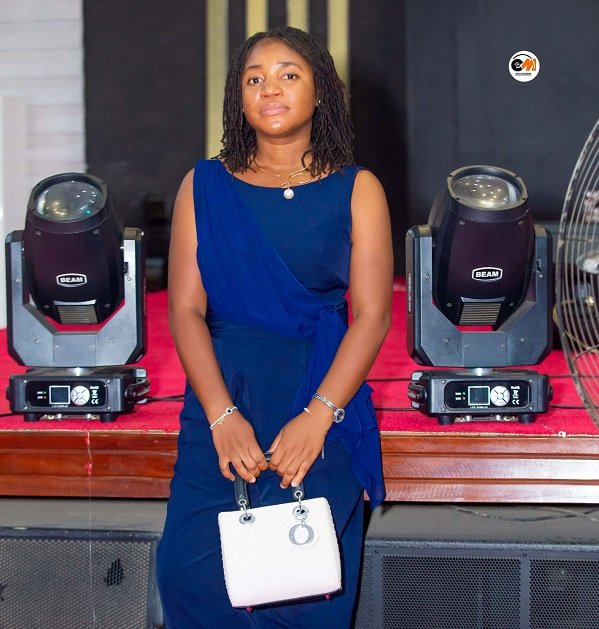
Every morning begins the same way for Edwina Anokye-Bempah, with quiet devotion. It is her grounding ritual, a moment of reflection and gratitude before she steps into the dynamic, often unpredictable world of real estate brokerage.
By the time she arrives at the office, she has already set the tone for her day. She reviews the previous day’s tasks, checks what was accomplished and what still needs attention, and then drafts a new to-do list. For her, success is rooted in deliberate planning, discipline, and the commitment to follow through.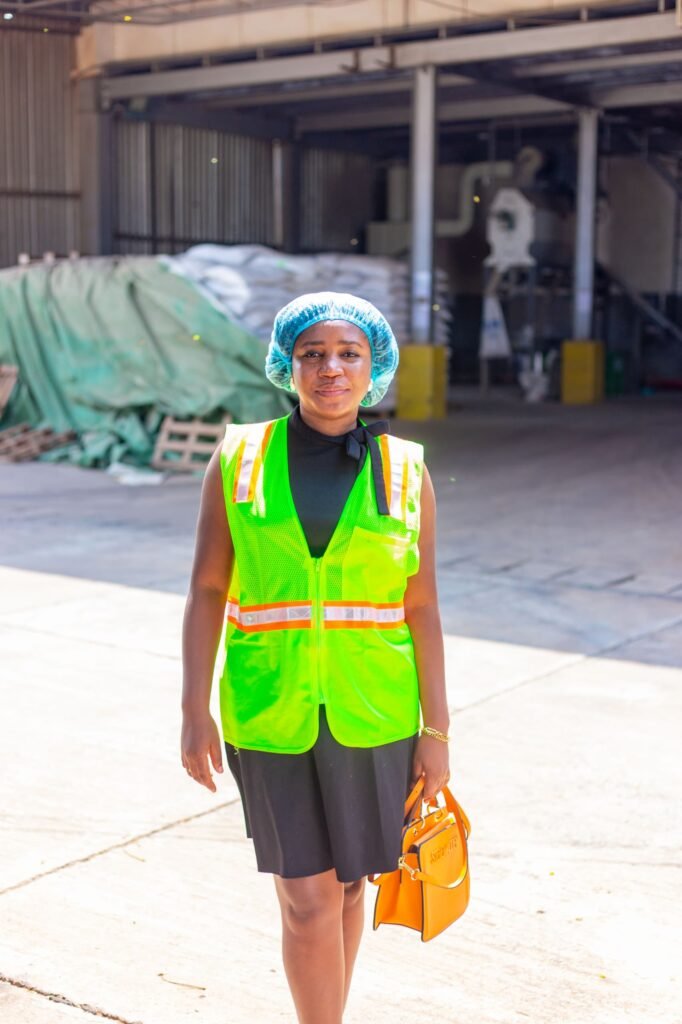
Today, Edwina stands out as one of Ghana’s promising real estate brokers, but she is also clear about the distinctions within her field. While many people casually use the term ‘realtor,’ she is quick to explain that only professionals registered with the National Association of Realtors can claim that title.
“Since I am not registered with the association, I am a real estate broker,” she says. It is a role she embraces wholeheartedly, facilitating transactions, connecting buyers and sellers, and ensuring clarity and integrity at every step.
Her journey into the industry took shape at MeQasa, an online platform dedicated solely to real estate. The platform exposed her to developers, agents, and the complexities of property transactions. She worked closely with developers and observed one recurring problem: clients often complained about agents who failed to respond, follow up, or provide accurate information.
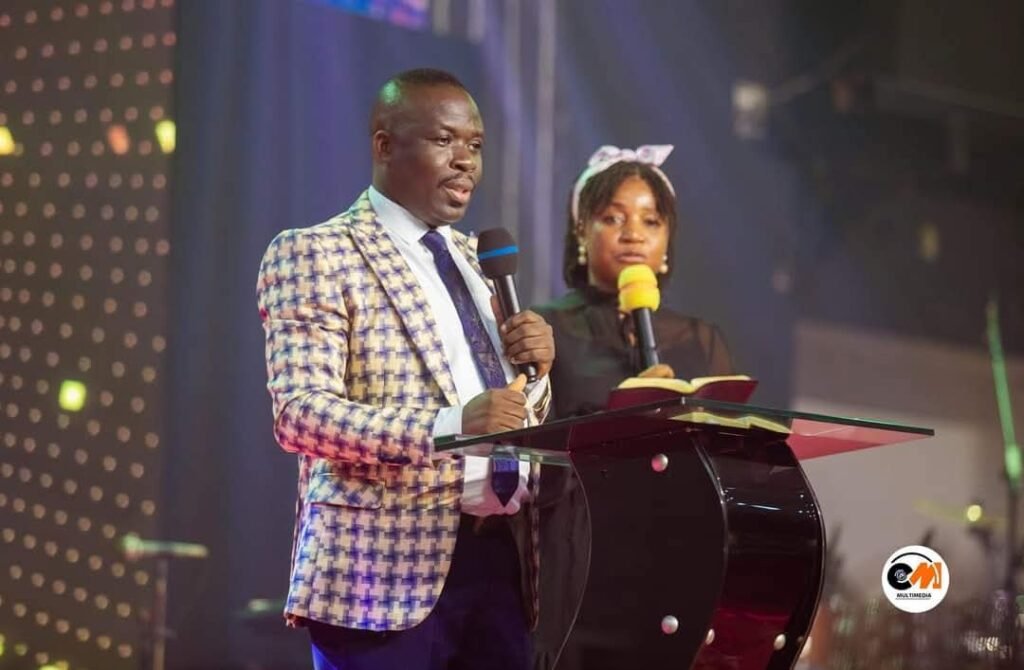
With her background in sales and marketing, Edwina felt naturally drawn to the field. It was an industry where she believed she could make a meaningful, positive impact. Real estate, she came to learn, is far more than brick and mortar. It is about helping people secure one of the most important investments of their lives. This understanding shapes every decision she makes.
One of the most challenging tasks in her work is qualifying clients.
“A serious buyer must be willing, ready and able,” she explains. When one of these three qualities is missing, the transaction is likely to stall or collapse entirely.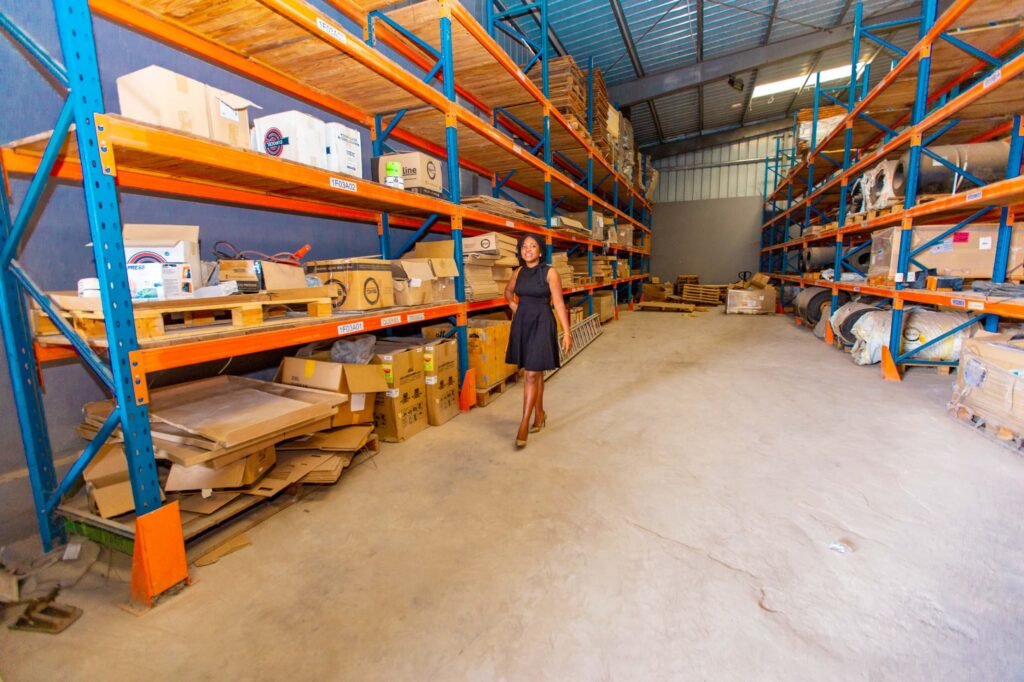
On the seller’s side, due diligence is equally critical. Ownership disputes, land fraud, and unclear documentation remain some of the biggest risks in Ghana’s real estate sector.
Edwina understands the weight of the responsibility she carries. “The money involved is huge. These are people’s lifetime savings. Most people buy one home or maybe two in their entire lives. You cannot afford to make a mistake.”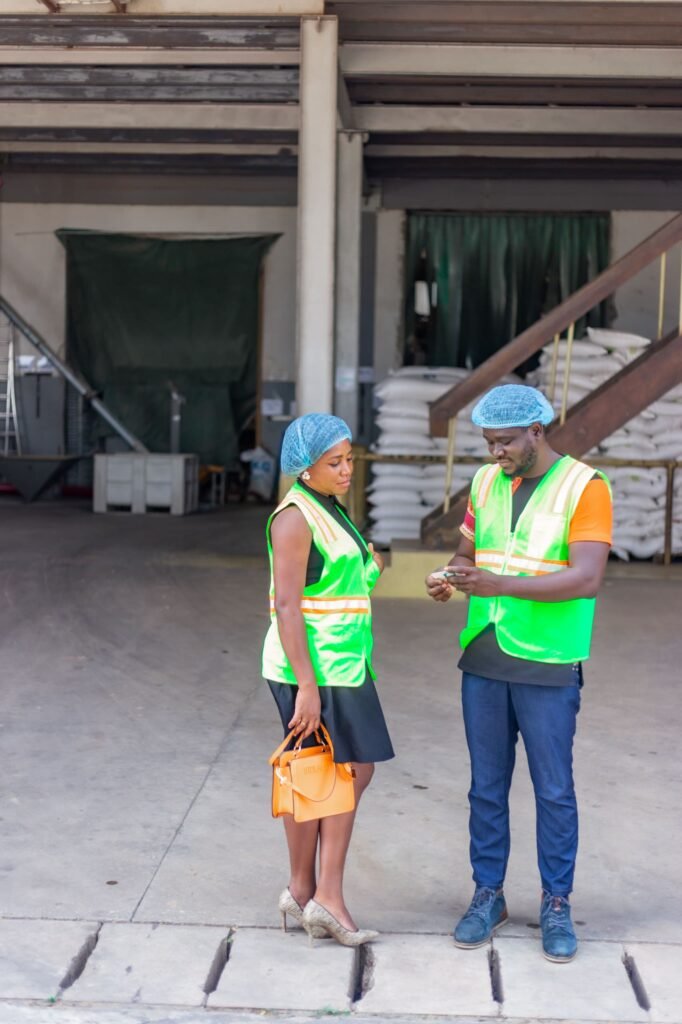
Working in what many describe as a male-dominated field has never intimidated her. With an MBA in Marketing and extensive experience in sales roles including a stint as an Account Manager in an advertising agency, she has grown comfortable handling clients, negotiating deals, and presenting herself with confidence.
“My gender has never discouraged me,” she says. “What matters is hard work and ensuring that the client’s needs were met.”
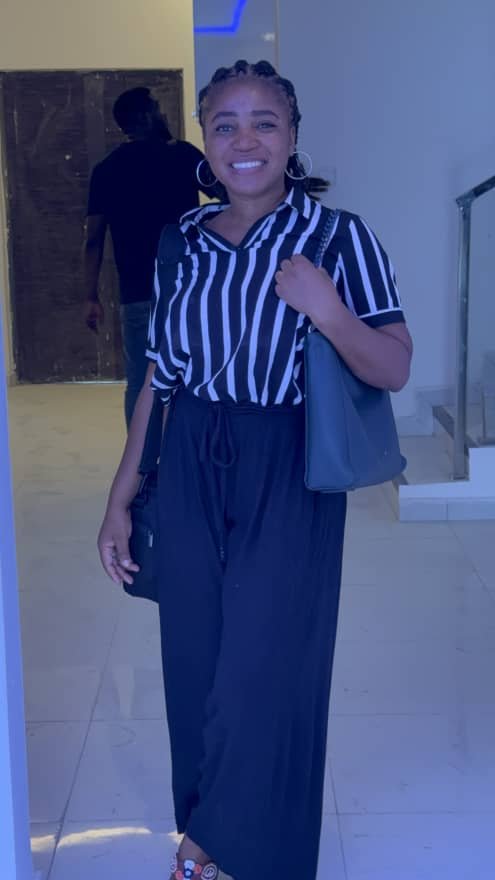
The only occasional challenge, she admits, was maintaining professional boundaries when some men attempt to be overly familiar. Her solution is simple: stay professional and do not over-familiarise yourself with clients.
Her educational journey started in Kumasi, followed by Yaa Asantewaa Girls’ Senior High School, where she studied Agricultural Science. She continued the same at the University of Ghana before pursuing her master’s degree. After university, she worked on her uncle’s poultry farm before moving into advertising. Later, her role at MeQasa finally opened the door to the career she had long been unknowingly preparing for.
Over the years, Edwina has built a reputation not only for competence but also for care. She recalls one client in particular, an older man relocating to Ghana with no family in the country. After helping him secure two homes, she became the closest person he could rely on. One evening at around 8 p.m., he called to say he felt unwell. Without hesitation, she drove to his home and rushed him to the hospital. Doctors later told her that any delay could have been fatal.
For Edwina, that moment affirmed that the job goes far beyond selling property. “It doesn’t end with the sale,” she says. “You have to look out for people.”
Her influence also extends to younger people observing her journey. She is known for her tenacity, her refusal to give up on clients or tasks, and her resilience in the face of challenges. Those who work around her learn to push forward regardless of setbacks.
“If a deal doesn’t go as expected, you don’t look back. You find a way.”
Beyond real estate, Edwina serves as an interpreter in her church, a role that dramatically boosted her confidence. What began with trembling legs has evolved into a boldness that reflects in her public speaking and client interactions. She credits her growth to God, her senior pastor, her mother, siblings, friends, and her dedicated team — “an amazing circle,” she calls them.
Today, she is also a partner in a showroom business dealing in vanity units, sanitary wares, and tiles, an extension of her real estate insight and experience.
For young people aspiring to join the industry, her advice is clear: “Learn the industry beyond selling. Understand transactions, build strong relationships, and always do your due diligence.”
For Edwina Anokye-Bempah, real estate is more than business; it is trust, service, and impact, one client at a time.
By Esinam Jemima Kuatsinu
Join our WhatsApp Channel now!
https://whatsapp.com/channel/0029VbBElzjInlqHhl1aTU27
Profile
How a Collapsed Dream Birthed Another: Daniel Debrah’s Music Journey

From the age of five, Daniel Nana Kwesi Kakra Debrah has lived a life surrounded by rhythm, harmony, and the quiet pulse of music. Growing up in a home where instruments filled corners and rehearsals were as normal as conversation, Daniel’s first teachers were not in formal classrooms—they were the sounds, movements, and discipline he absorbed from his father, a committed church musician.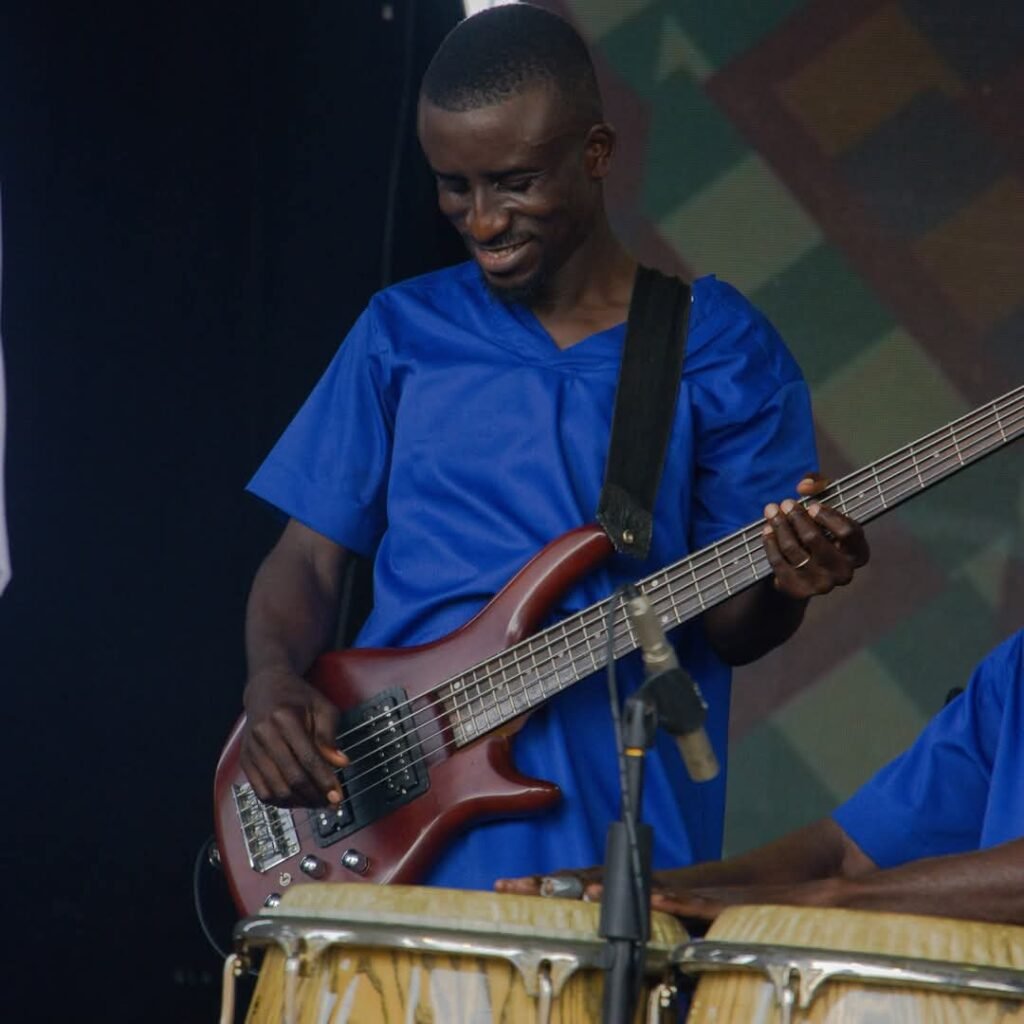
Ironically, music was not Daniel’s first dream. Like many young boys, he once hoped to become a professional footballer. But an injury from a school match left him unable to walk for three months, forcing him to retire that ambition. What seemed like a tragedy at the time became the turning point that aligned him with the path he was always meant to follow.
Daniel’s earliest musical expression began in church. As a boy in Sunday School, he eagerly ‘pounded’ the drums, quickly becoming known as the child who never missed an opportunity to play. Even in Senior High School (SHS), although many of his classmates were unaware of his talent, he continued practising quietly until completing school in 2005.
After SHS, Daniel joined a church music class with the intention of growing as a drummer, but one moment changed everything. Watching a bass guitarist perform stirred something in him. Drawn to the deep, steady tones of the bass, he persuaded a friend to teach him the basics. With no instrument of his own, Daniel practised at home using a broken guitar for more than eight months.
Then destiny intervened. The church’s lead bassist was suddenly suspended, and Daniel stepped in voluntarily during an evening service. That temporary voluntary act became permanent as he was asked by the then Music Director to fill in the gap. From that point, he embraced the bass guitar fully—a decision that defined the rest of his life.
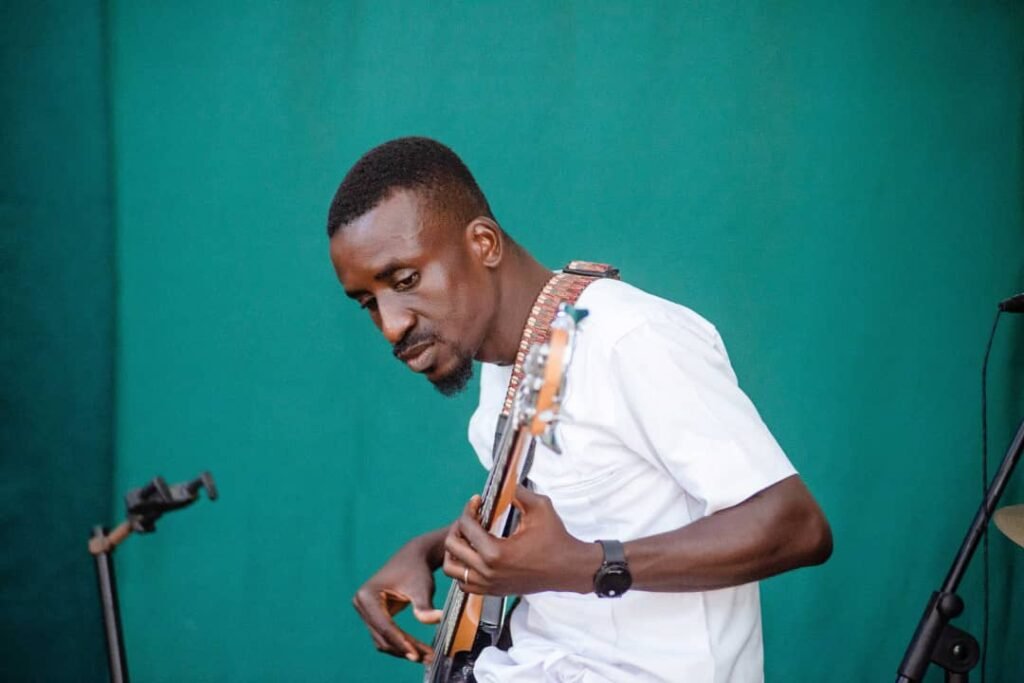
Around 2006, Daniel made a life-changing decision to take his craft seriously. He began practising for hours on end, sometimes up to eight hours a day, often without food, locked away from family and friends, perfecting techniques and expanding his creativity. While others assumed he was outdoors socialising, Daniel was indoors sharpening his gift.
His breakthrough came in 2007 when he performed in the TV3 Bands Alive competition. The exposure, applause, and feedback confirmed his dream: “music was not just a passion; it was his calling,” he said.
With time, Daniel moved confidently into the professional space. He performed at studio sessions, live concerts, weddings, church events, and high-profile national programmes. His talent, discipline, and reliability earned him a reputation that continues to attract respected gospel artistes.
Today, he works closely with Daughters of Glorious Jesus, Chris Apau, and Israel Ofori, who have been of immense help to his career ministry. He also collaborates with several ministries and offers support with musical arrangements, live performances, and studio recordings.
Beyond the stage, Daniel sees himself as a mentor. Many young musicians reach out to him, some visiting in person, others calling for guidance. Whether through hands-on training or virtual coaching, he is always ready to teach. For Daniel, music is not just technique; it is character, discipline, and values. He believes a musician must carry integrity both on and off stage.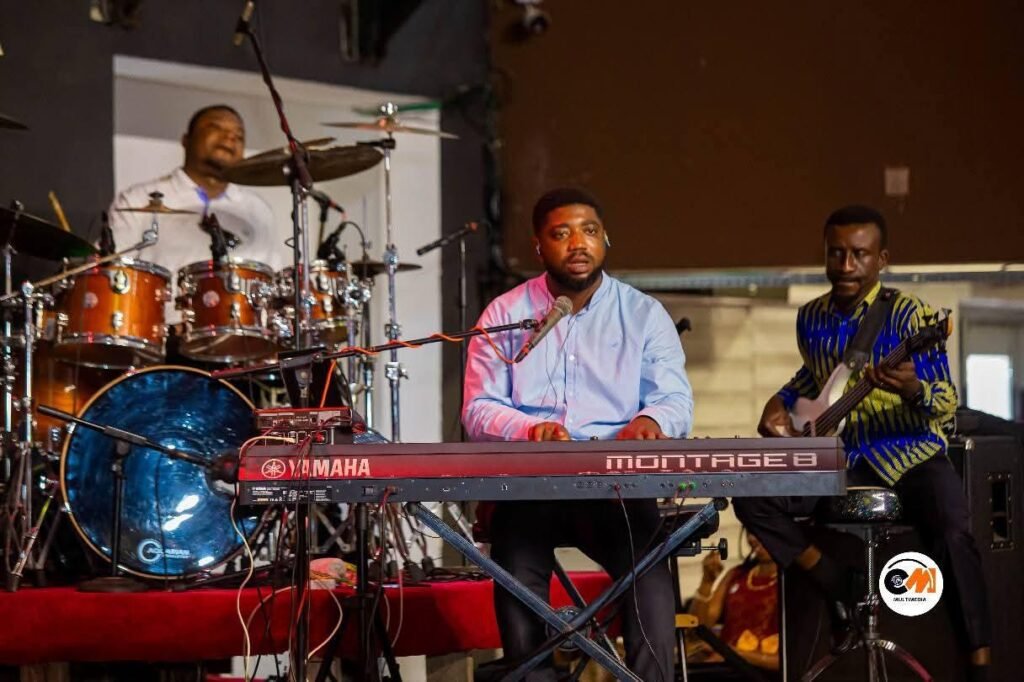
Like many musicians in Ghana, Daniel has faced challenges with delayed payments and broken agreements. These experiences have taught him to value professionalism. He now insists on part payment upfront and charges more for his services, a decision grounded in self-respect and fairness.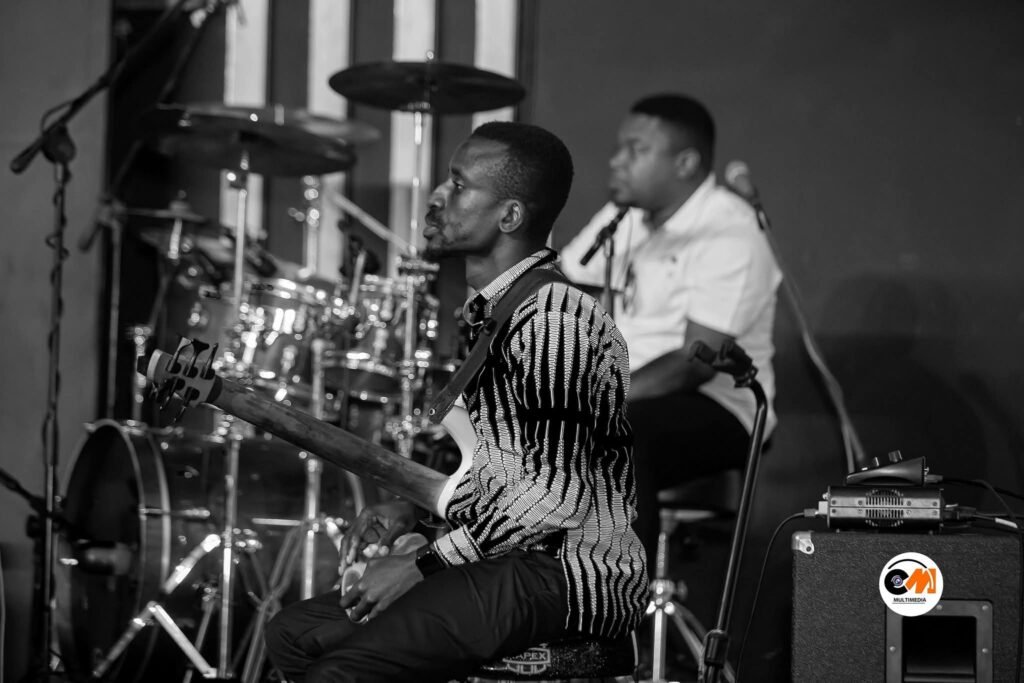
Daniel’s journey in music has been shaped by various individuals who have supported him at different stages of his career. He acknowledged Opoku Agyeman Sanaa, Kofi Ennin, Andrew Klu, Mr. Samuel Abbey, Mr. Samuel Sarpong Agyei, Paul Quartey, Mr. Nene Emmanuel, and Mr. Isaac Asiedu, saying that their belief in him continues to inspire his journey.
Daniel’s work is guided by his Christian faith. He sees music as ministry, not merely entertainment. Off stage, he is a devoted family man—a husband and father of two, a boy and a girl, who have also started playing musical instruments. During his leisure time, he listens to music, or plays football and action video games.
Through his acts of service and unwavering determination, Daniel continues to inspire others, proving that when passion meets integrity, ordinary men impact the lives of others.
By Esinam Jemima Kuatsinu

